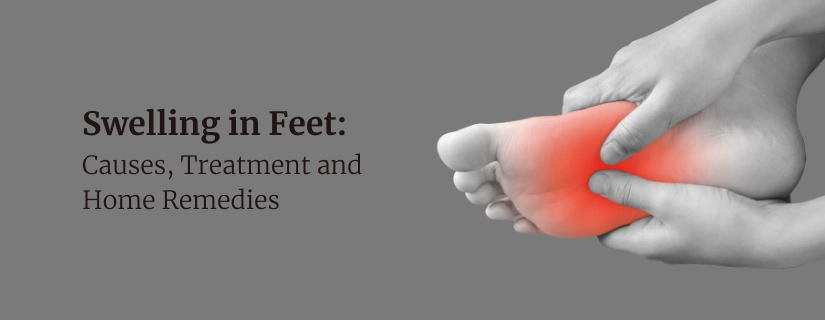-
Doctors
-
Specialities & Treatments
Centre of Excellence
Specialties
Treatments and Procedures
Hospitals & Directions HyderabadCARE Hospitals, Banjara Hills CARE Outpatient Centre, Banjara Hills CARE Hospitals, HITEC City CARE Hospitals, Nampally Gurunanak CARE Hospitals, Musheerabad CARE Hospitals Outpatient Centre, HITEC City CARE Hospitals, Malakpet
HyderabadCARE Hospitals, Banjara Hills CARE Outpatient Centre, Banjara Hills CARE Hospitals, HITEC City CARE Hospitals, Nampally Gurunanak CARE Hospitals, Musheerabad CARE Hospitals Outpatient Centre, HITEC City CARE Hospitals, Malakpet Raipur
Raipur
 Bhubaneswar
Bhubaneswar Visakhapatnam
Visakhapatnam
 Nagpur
Nagpur
 Indore
Indore
 Chh. Sambhajinagar
Chh. SambhajinagarClinics & Medical Centers
Book an AppointmentContact Us
Online Lab Reports
Book an Appointment
Consult Super-Specialist Doctors at CARE Hospitals
Everything to Know About Erythrocyte Sedimentation Rate (ESR)
Updated on 12 February 2025

In the field of medical diagnostics, the Erythrocyte Sedimentation Rate (ESR) test stands out as a simple yet powerful tool. ESR serves as a non-specific indicator of inflammation, playing a key role in the initial screening and ongoing monitoring of various medical conditions. Let us delve into the intricacies of this test and understand its significance in modern healthcare.
What is ESR?
ESR is a measurement of the rate at which red blood cells (erythrocytes) settle from the plasma in anticoagulated blood. This test, expressed in mm/hr, provides valuable insights into the presence of inflammation in the body.
The Mechanism Behind ESR
The ESR test is fundamentally based on the interaction between factors that promote (fibrinogen) and resist (negative charge of RBCs) sedimentation. Under normal circumstances, RBCs settle slowly due to their negative surface charge, which causes them to repel each other gently. However, in certain conditions, these cells form stacks called rouleaux, which are heavier and settle faster.
Plasma proteins, mainly fibrinogen, play a crucial role in this process. They adhere to red cell membranes, neutralising the surface negative charges and promoting cell adherence and rouleaux formation. Interestingly, ESR is directly proportional to the weight of cell aggregates and inversely proportional to the surface area.
Stages of Erythrocyte Sedimentation
The sedimentation process occurs in three distinct stages:
- Stage of rouleaux formation/aggregation (10 minutes)
- Stage of sedimentation/settling (40 minutes)
- Stage of packing (10 minutes)
Factors Affecting ESR
Various factors can influence ESR results:
- Factors that increase ESR:
- Age, female gender, pregnancy
- Anemia, RBC abnormalities
- Macrocytosis
- Elevated fibrinogen levels
- Infection, inflammation, malignancy
- Factors that decrease ESR:
- Extreme leukocytosis, polycythemia
- RBC abnormalities (e.g., sickle cell anaemia)
- Spherocytosis
- Acanthocytosis
- Microcytosis
- Technical factors
- Dilution problems
- Clotted blood sample
- Short ESR tube
- Vibrations during testing
- Protein abnormalities
- Hypofibrinogenemia
- Hypogammaglobulinemia
- Dysproteinemia
Clinical Significance of ESR
ESR values are interpreted based on specific ranges:
- Normal: 51-54%
- Mildly elevated: 55-59%
- Moderately elevated: 60-64%
- Markedly elevated: >64%
Advantages and Limitations
The ESR test offers several advantages:
- Easy to perform
- Inexpensive
- Provides rapid results
- Useful for initial screening and follow-up monitoring
How to Reduce ESR Naturally
Natural methods for reducing ESR levels combine lifestyle modifications, dietary changes, and traditional remedies. Research shows these approaches can effectively lower inflammation markers when implemented consistently and correctly.
Lifestyle Modifications
Regular physical activity can be considered one of the most effective natural ways to reduce ESR levels. Studies indicate that individuals who engage in high-level physical activity demonstrate lower ESR values than those with sedentary lifestyles. A minimum of 30 minutes of exercise, performed at least three times weekly, can significantly impact inflammation levels.
Essential lifestyle changes include:
- Maintaining proper hydration (1-2 litres daily)
- Getting 7-8 hours of quality sleep
- Managing stress through meditation or deep breathing
- Maintaining a healthy BMI
- Avoiding smoking and limiting alcohol consumption
Anti-inflammatory Diet
A well-balanced diet rich in anti-inflammatory foods plays a crucial role in reducing ESR levels naturally. The most effective anti-inflammatory foods include:
- Fatty fish (salmon, mackerel, sardines)
- Berries (blueberries, strawberries, raspberries)
- Green leafy vegetables (spinach, kale)
- Nuts and seeds (walnuts, chia seeds)
- Olive oil
- Dark chocolate
- Mushrooms
- Bell peppers
- Broccoli
Natural Remedies
Turmeric stands out as a powerful natural remedy for reducing ESR levels. Its active compound, curcumin, works as an effective anti-inflammatory agent. Combining turmeric with milk before bedtime can enhance its effectiveness in reducing inflammation.
Green tea consumption offers another natural approach to lowering ESR levels. Its rich antioxidant content helps combat inflammation throughout the body.
Conclusion
Despite its simplicity, the Erythrocyte Sedimentation Rate test remains a valuable tool in modern medicine. Its ability to detect inflammation makes it an essential component for initial screening and disease monitoring. However, like all medical tests, ESR should be interpreted with other clinical findings and diagnostic tools to understand a patient's health status comprehensively.
As medical science advances, the ESR test continues to evolve, with automated methods enhancing its efficiency and safety. Understanding the nuances of this test empowers doctors to make informed decisions, ultimately leading to better patient care and outcomes.
ENQUIRY FORM
SELECT CATEGORIES
-
Neurosciences (16)
-
Neurology (37)
-
Neurosurgery (14)
-
Orthopaedics (48)
-
Oncology (33)
-
Obstetrics and gynecology (51)
-
Pulmonology (23)
-
Urology (20)
-
Nephrology (13)
-
Psychiatry (7)
-
Dietetics and Nutrition (111)
-
General Medicine (63)
-
Cardiac Sciences (30)
-
Vascular & Endovascular Surgery and Interventional Radiology (10)
-
Gastroenterology (46)
-
Endocrinology (23)
-
Plastic Surgery (10)
-
Critical Care Medicine (5)
-
COVID-19 (16)
-
Dermatology (16)
-
Emergency Care (1)
-
Ophthalmology (4)
-
Pediatrics (14)
-
Laparoscopic and Bariatric Surgery (8)
-
ENT (15)
-
Kidney Transplant (1)
-
Liver Transplantation and Hepatobiliary Surgery (5)
-
General Surgery (3)
-
Internal Medicine (5)
-
Medicine Information
12 Home Remedies for Arthritis
Direct Anterior Approach in Total Hip Replacement: Advantages and Challenges
YOU MAY ALSO LIKE
RECENT BLOGS
-

Direct Anterior Approach in Total Hip Replacement: Advantages and Challenges
10 April 2025
Read More
-

Zinc Deficiency: Signs and Symptoms, Causes, Treatment
9 April 2025
Read More
-

Chest Pain When Coughing: Causes, Treatment and Home Remedies
9 April 2025
Read More
-

12 Health Benefits of Eating Mushrooms
8 April 2025
Read More
-

7 Health Benefits of Blood Donation You Should Know About
8 April 2025
Read More
-

Implantation Bleeding Vs Periods: Know the Difference
28 February 2025
Read More
-

Bloating During Ovulation: Symptoms, Causes and Remedies
28 February 2025
Read More
-

Itching During Dengue: Causes, Treatment and Home Remedies
18 February 2025
Read More
Have a Question?
If you cannot find answers to your queries, please fill out the enquiry form or call the number below. We will contact you shortly.















































